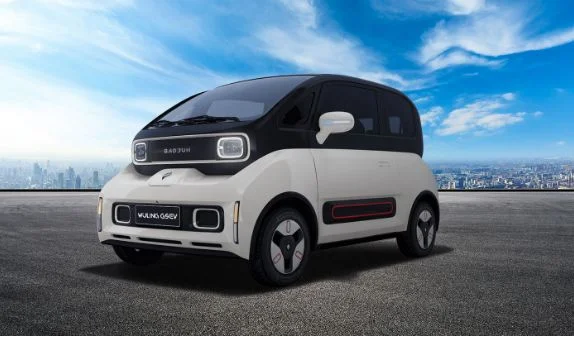Introduction
The use of New and Renewable Energy (EBT) continues to be developed significantly. One example is its application to electric cars. The type of vehicle that is said to be more environmentally friendly and more cost-effective in operation, this electric car is of course very different from ordinary cars that operate on gasoline.
Here are some of the differences that could be your consideration.
Differences Between Electric Cars and Gasoline Fuel Cars
| Feature | Electric Car | Gasoline Fuel Car |
|---|---|---|
| Power Source | Electric motor powered by a battery | Internal combustion engine powered by gasoline or diesel |
| Fuel Consumption | Electricity | Gasoline or diesel |
| Emissions | Primarily produce carbon dioxide (CO2) | Produce a variety of pollutants, including carbon dioxide, nitrogen oxides, particulate matter, and volatile organic compounds |
| Refueling | Charging stations | Gas stations |
| Driving Range | Limited by battery capacity | Limited by fuel tank capacity |
| Maintenance | Fewer moving parts, requiring less maintenance | More complex maintenance, including oil changes, tune-ups, and engine repairs |
| Performance | Instant torque, quiet operation | Gradual power delivery, noise |
| Cost | Higher upfront cost, lower operating costs | Lower upfront cost, higher operating costs |
| Environmental Impact | Generally considered more environmentally friendly, especially in regions with clean energy sources | Contribute to air pollution and climate change |
| Government Incentives | Often eligible for tax credits, rebates, and other incentives | May not be eligible for incentives |
Note: These are general differences and may vary depending on specific models and regional factors.
Main component differences
The first difference, of course, lies in the main components of these two types of vehicles. Ordinary cars operate by utilizing gasoline. This gasoline will then be channeled by the fuel system to be converted into energy. This process occurs in the combustion chamber in the car engine which allows the car to move.
In contrast to electric cars that use batteries to store energy. This stored energy will then drive one or several electric motors which are the main driving force in this one vehicle.
Previously, electric cars used lead-acid batteries. However, most of the newest electric cars use lithium-ion batteries to store energy. This is a type of battery that can be recharged, aka charged like smartphones and laptops.
Advantages and disadvantages
These two types of vehicles are not only different in components, but in terms of advantages and disadvantages.
The advantages of electric cars become the disadvantages of gasoline-fueled cars. Conversely, the disadvantages of electric cars become the advantages of gasoline-powered cars.
Electric cars are considered more environmentally friendly than ordinary cars. This is due to lower gas emissions in electric cars. In addition, using an electric car is also more energy efficient, unlike when using fuel for ordinary cars which are considered more energy-intensive.
In terms of maintenance, electric cars are somewhat easier than ordinary cars. No need to change electric car car oil. The maintenance that is carried out includes much simpler battery maintenance. Electric cars are also space-saving because the electric motor and battery don't take up much space in the car body.
Unfortunately, electric cars themselves still have some drawbacks. Because it is battery-based, of course there are limits to the power and mileage of the car. In contrast to cars that use more fuel can travel farther and easier to refuel.
In terms of price, electric cars are clearly much more expensive than ordinary cars. Even though it is true that the operational costs are cheaper, the purchase costs are not. It's no wonder that not many people have switched from ordinary cars to electric cars.
Impact on the environment
As mentioned in several points in this article, electric cars and ordinary cars do have a different impact on the environment. An ordinary car that uses fuel, for example. Because this fuel comes from dirty fossils, it's no wonder that its emissions also have a negative impact on the environment, namely causing enormous air pollution.
In contrast to electric cars that use new renewable energy such as solar panels and energy storage batteries. The carbon gas emissions emitted by electric cars are said to be 25% lower than ordinary cars. This figure can certainly reduce air pollution and its negative impact on the environment.
Can electric cars replace petrol cars?
The many benefits, especially in the context of sustainability, from electric cars make them EBT-based vehicles ready to replace ordinary cars in the next 10 or a few years.
One of the reasons is because electric cars provide an alternative that is more relevant to today's environmental issues.
National Grid, a UK company engaged in the utility sector, even estimates that there will be 36 million electric-based vehicles operating in the UK in 2040. Not to mention several studies and surveys showing that electric cars will become a mass transportation option in the next 10 years. .
These predictions are possible, considering that several major world vehicle brands have also started projecting their production by utilizing EBT. So, it's only natural that in the next 10 years there will be more users of cars or vehicles based on electricity and other EBT than ordinary cars that still use fuel.
<
